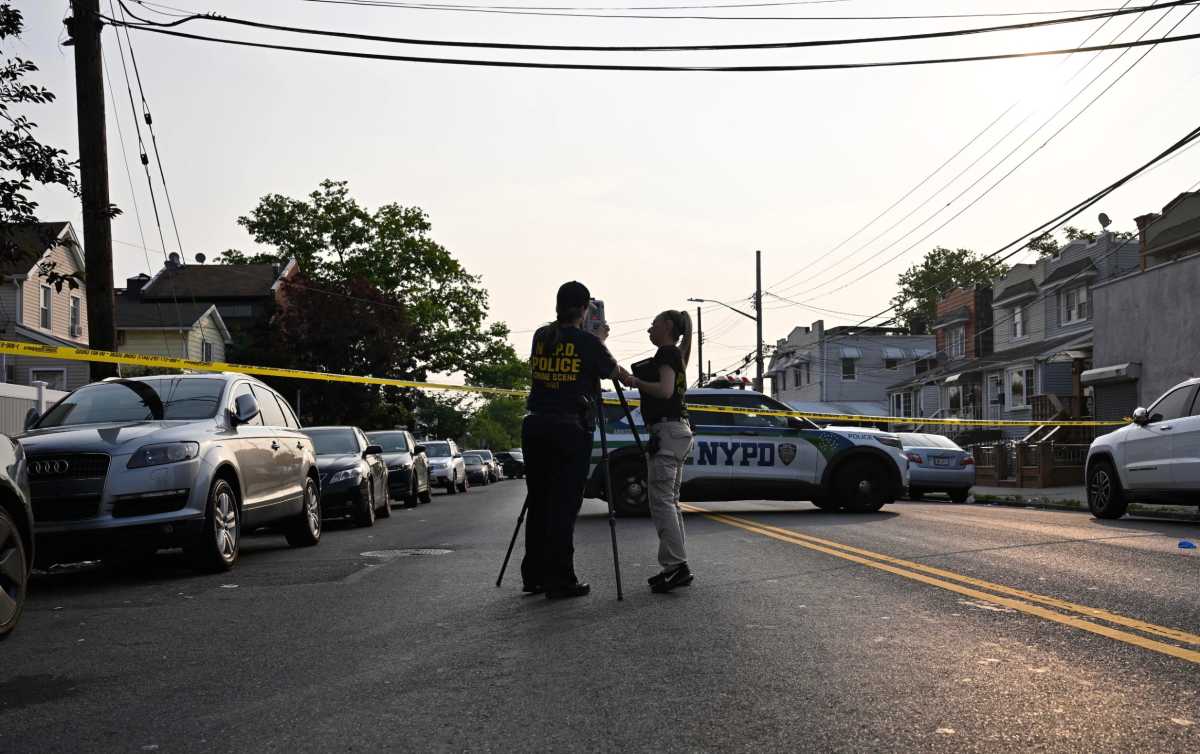City’s mafia cop payoff
The city agreed to fork over $9.9 million on June 2 for the misdeeds of mobbed-up Detective Louis Eppolito, who framed a man for a crime he didn’t commit and then never looked back as his victim spent the next 18 years behind bars.
Barry Gibbs, 62, who was released from prison last year when the famed “Mafia Cop’s” ties to the Luchese Crime family were revealed, was preparing to sue the city for $18 million — $1 million for every year he was in jail — before the city approached him with their offer.
“I can go forward with my life now,” he told reporters.
Back in 1986, as he investigated the slaying of prostitute Virginia Robertson, Eppolito forced a witness to identify Gibbs as the killer to steer the investigation away from a Luchese soldier truly responsible for the crime.
Eppolito forced the witness to point Gibbs out of a line-up conducted at the 63rd Precinct in Flatlands, even though Gibbs looked nothing the actual killer, who was described as five inches shorter and clean-shaven. At the time of his arrest, Gibbs sported a mustache.
With the fraudulent ID weighing heavily against him, Gibbs was convicted of murder and sentenced to 20 years to life.
“The settlement amount speaks loudly about Barry’s innocence and the Police Department’s failure to take action against Eppolito,” Gibbs’ attorney Nick Brunstin said.
Eppolito is currently serving life in prison for offering up his badge to the mob.
But Eppolito’s conscience may have been eating him when it came to the Gibbs case. Cops would never have learned about the false arrest if they didn’t find Robertson’s case file in Eppolito’s retirement home in Florida, officials said.
Sex ring clipped
A crew of Bloods members who called themselves the “Horse Gang” were corralled into a prison cell on June 2 after they were indicted for running a sex trafficking ring.
Led by 30-year-old Abking Wilcox, the three suspects were accused of preying on women in Bushwick and Brownsville as young as 15 and forcing them into prostitution between 2007 and 2009.
The trio would recruit girls from local high schools and junior high schools. Once they were part of the crew’s “team,” the suspects would force them to sell themselves on the street, prosecutors said. If they didn’t come back with $500 each night, they would be beaten or denied food.
Wilcox and his cohorts came up with their nickname as a reference to the “stables” of girls they allegedly had.
Besides forcing the girls to work the streets, the group also advertised adult services on various Web sites including Craigslist and backpage.com., according to prosecutors.
They would also hold parties where they charged entry fees that included sex with the women and girls they had under their control, prosecutors alleged.
Wilcox and accomplices are charged with sex trafficking, promoting prostitution and assault. They could each face up to 15 years in prison if convicted.
Motion papers denied
A man found guilty of gunning down two people in 1989 pushed to have his conviction overturned after learning that one of the prosecution witnesses was a police informant.
In court documents filed on May 18, defendant Bernard Jackson said he didn’t find out until recently that the witness had an “off-the-record deal” with detectives in which “he would not go to prison as long as he testified at [Jackson’s] trial.”
The witness also received money from detectives, according to the motion papers, which demanded a new trial.
If a jury learned that one of the key witnesses was working with the police, it “would have damaged the credibility of [the witness] to such an extent that the jury could not have possibly found Jackson guilty,” the papers read.
Despite the convincing argument, Judge John G. Ingram denied the motion, claiming that when this agent of the police theory was first presented at appeal, there was no credible evidence “establishing that [the witness] was a paid informant or that he received any benefit for providing information to the police.”
“This court finds no basis to disturb its previous decision,” Ingram wrote.

























